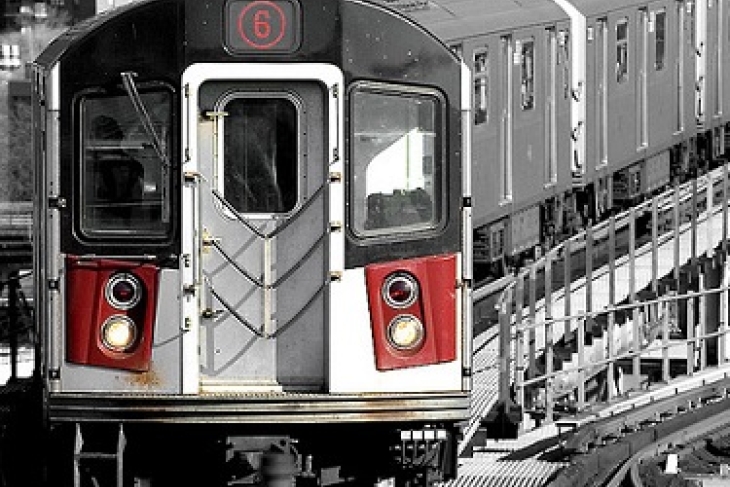In early April, I wrote that school choice is the highest form of fairness because it rewards positive behavior and aligns the interests of parents, children, and schools. Some disagree, arguing that school choice disadvantages the non-choosers. It is admirable to want to protect the most vulnerable students—the children of parents who do not or cannot engage effectively. But we must not do this at the expense of families who are engaged and do make good decisions for their kids.
As we parents often remind our children, two wrongs don’t make a right.
By encouraging parents to make choices, we also send an important message to students about our values. For the kindergartners at my school, a choice might be as simple as how to share the wooden blocks with a new friend. This simple and safe experience helps them practice the larger and more consequential decisions they will face.
Across the income spectrum, the parents I’ve met are concerned with our failure in both schools and civil society to inculcate critical values in our children. Research affirms the importance of persistence, delaying gratification, and other “gritty” non-academic values. If we ignore parent behaviors in the name of fairness, how can we expect children to appreciate those values?
A recent episode of This American Life underscored this dilemma. The reporter followed students from University Heights High School in the Bronx, a school whose poverty is inversely proportional to its proximity to Fieldston, one of New York’s famously wealthy private schools. The two schools operated an exchange program that allowed the largely underprivileged students from University Heights to glimpse the incredible opportunities available to those at Fieldston.
Speaking of her freshman year, a University Heights student named Melanie recalled the first few days. “This has got to be a joke…They don’t offer any AP classes….We didn't have a library, and I love books….We’re really in a poor part of the Bronx where we’re not being considered.”
Despite starting at a deep disadvantage, Melanie quickly emerged as one of the kids who would make it to college. Nominated for a prestigious (and highly competitive) Posse scholarship, her teachers and peers could all see her at Middlebury. But when she was dropped in the final round, Melanie lost her way completely.
Tracked down a decade later at the grocery store where she is now employed, Melanie acknowledged that she does the work she’d always hoped to escape: “wearing the uniform, servicing these people.” She meant the ones who'd gone to Fieldston.
But she knew that she was the one to blame: “I just grew angry at myself for making that choice of saying, ‘Well, I’m going to accept this,’ instead of fighting against it.” Melanie saw that losing out on the scholarship didn’t have to be the end of her dream. By failing to respond to the many teachers, both at University Heights and Fieldson, who reached out to her and wanted to support her, she let that happen.
The same reporter spent time with Jonathan Gonzalez and Raquel Hardy, classmates of Melanie’s who’d won scholarships to two esteemed colleges. Their paths were not much easier. Hardy told the reporter, “In the beginning, I struggled too. My first year, I got C-pluses and B-minuses. It was devastating to me because I was an A-plus student in high school, and we both were like, ‘This is a lot. This is crazy. I wasn't expecting this.’”
Her boyfriend Jonathan could not afford to buy textbooks and, embarrassed by his poverty, started skipping classes and hiding in his dorm room. Raquel, who faced the same struggle at her own school but knew to ask for help, told Jonathan to go to the university library.
I run a Brooklyn charter school, and I discussed this story with our Director of Operations, Ferrugia Sonthonax. “Oh,” Ferrugia told me, “I applied for a Posse too.“ Like Melanie, she did not win. But like Raquel and Jonathan, she knew to keep trying.
For Ferrugia, college was only a question of where, not if. Like generations of immigrant children before her, she attended the City University of New York and continued down the path her Haitian-born parents had always expected for her.
Critics of choice point to the Melanies and ask, “What if someone had tried harder to help her?” Speaking for myself, I wonder, “What if we helped to foster more Raquels, Jonathans, and Ferrugias?
The trolley problem is a thought experiment that asks if it is acceptable to harm one person to save five from a runaway train. Throw the switch and one person will be crushed; don’t, and five others will. The ways we respond to this ethical dilemma underscore our humanity.
Life is all about choices. Before critics denounce parents who look for alternatives to schools that routinely fail to prepare their students for meaningful participation in civil society, let’s hope they acknowledge the moral choice we are making for them.
Matthew Levey is the executive director of the International Charter School, a Brooklyn elementary school opening this fall. His three children attend New York City public schools.

